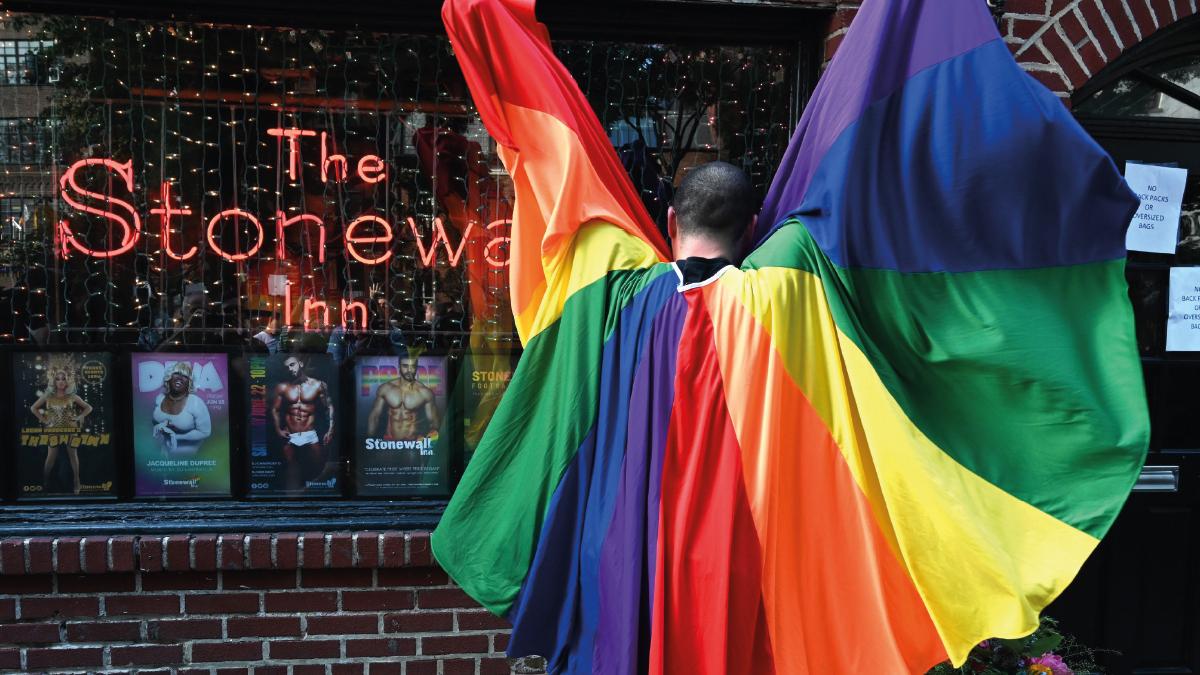Support, guidance and updates from the CSP’s Employment Relations and Union Services team

Iain Croker, CSP organiser, asks what have unions ever done for us?
Last year marked 50 years since the Stonewall riots.
During the 1970s and 1980s anyone fighting for LGBTQIA+ equal rights confronted challenges and found prejudice everywhere. In addition to having no rights, much of the British press (at a time when its influence was massive) was violently hostile, culminating in prejudiced hysteria over AIDS (‘gay plague’ according to The Sun), and the incorporation into law (via ‘Section 28’) of the idea that our relationships were ‘pretended’.
Against this tide of prejudice, the trade unions stood firm and were well ahead of popular opinion. A refreshing change from much of today’s politics, where populist leaders look to see which way the crowd is marching and race to the front. Very little of the story of how LGBTQIA+ people won the right not to be discriminated against is taught in our schools and colleges, and even less about the part played by the unions.
When the (then) lesbian and gay movement in Britain was established in the 1970s to fight back against overwhelming, (not to mention illegal) popular prejudice, trade unionists were already organising to win their own unions over to support this struggle.
By the middle of the decade, major unions voted to support their gay members, notably those in education and local government.
In 1976 members of one of the predecessor unions of UNISON took strike action to defend one of their gay members who’d been victimised by the employer. They won.
By the 1980s, huge progress was made across scores of unions, leading to recognition at both TUC Congress and the Labour Party annual conference in 1985 – assisted by the impact of Lesbians and Gays Support the Miners (brilliantly portrayed in the film Pride).
By the 1990s the whole movement was committed to equality and unions went on to work through the TUC to drive the Labour governments of 1997 to 2010 to establish almost full legal equality.
Not until the 1990s did popular opinion shift towards seeing LGBTQIA+ people as deserving of equal treatment.
This may come as a shock for anyone under 30!
Very few LGBTQIA+ people themselves know how this transformation was achieved in just a few decades up to today. The part played by unions in these victories remains hidden from history.
Today’s activists stand on the shoulders of so many modest pioneers. It falls to LGBTQIA+ people and allies to remind everyone that unions stood against injustice even when it was unpopular.
Since 2016 we have witnessed the rise of populism, a spike in hate crime, and acute and often media-sanctioned prejudice against those in the LGBTQIA+ community, including people who are trans or non-binary.
The trade union movement brings people together through a commitment to equality and our real life experience of the challenges facing working people.
Unions oppose any violence or intimidation, bullying or disrespect, towards any group that faces discrimination.
The CSP, together with other affiliates of the TUC, representing in total some six million workers across the UK, will continue to campaign for LGBTQIA+ equality and our values of inclusivity.
Get involved
- There are many ways in which you can actively engage with the CSP LGBTQIA+ network: twice a year diversity network day and regular virtual meetings.
- Email national officer for equality & diversity, Siân Caulfield, for more info email caulfields@csp.org.uk
- iCSP networks, join in discussions on Twitter @CSPLGBTQIA+
- If you identify as LGBTQIA+ join the LGBTQIA+ WhatsApp group.
- Email Gill Feldman feldmang@csp.org.uk to join; follow us on Facebook search CSP LGBTQIA+
Further reading
Number of subscribers: 1




































